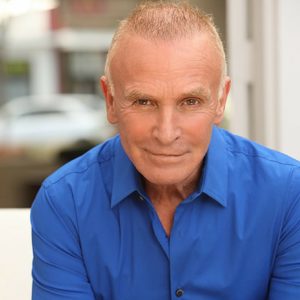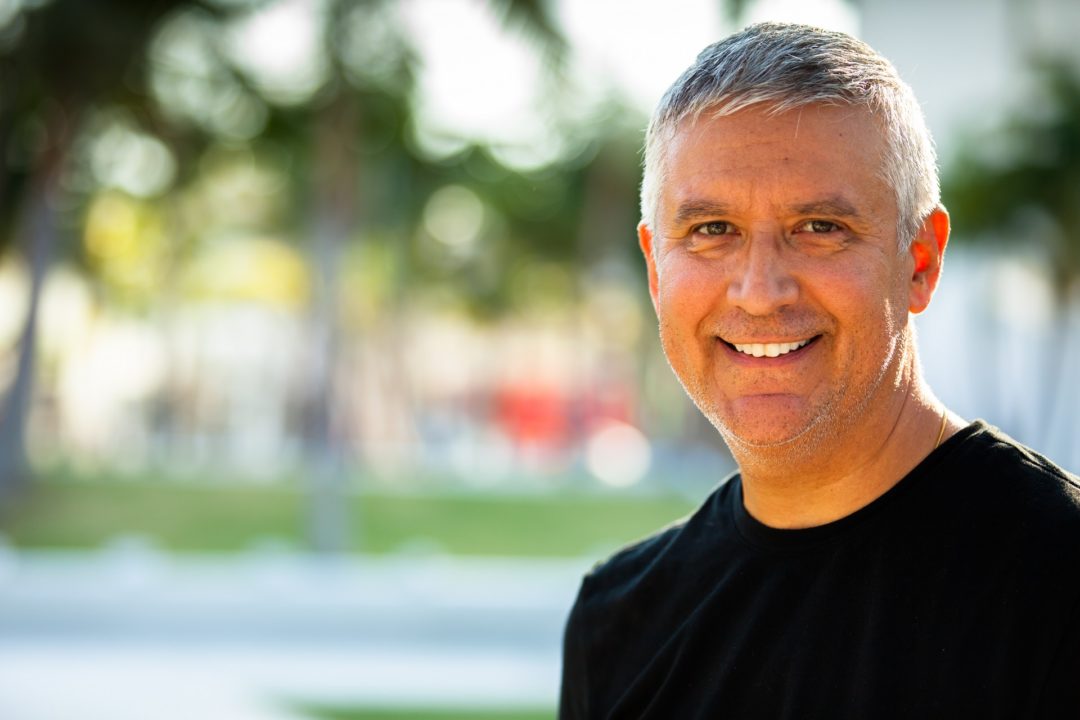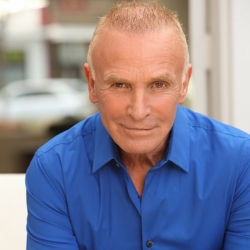Let’s be honest: for most people, aging sucks.
Six million people in the US—outside of institutions, mind you—are wheelchair bound.Two million in the US are either in nursing homes or assisted living.
And a whopping 50% of those will die within 12 months of entering such a facility.
Millions more are unable to participate in recreational activities.
And, as most people know, the last five years of life—particularly if you haven’t been paying attention to your health—are pretty grim.
It doesn’t have to be that way.
Last year, after almost 27 years in the weight loss industry, I decided to change my focus a bit. After all, most people who want to lose weight are looking to do so because they believe losing weight will change their life for the better. So why not just address the issues that make life better? Sure, weight loss might be part of that, but it’s definitely not the whole deal.
I decided to expand my “portfolio,” if you will, and start talking more to one of the most underserved populations on the planet—older men.
Now, don’t get me wrong. Women have their own sets of issues about aging, many of them overlapping with ours, but some unique to women (just as we have issues that are unique to us). One difference: There have always been champions of women, brilliant and inspiring writers and practitioners like Christiane Northrup, MD, whose book,The Wisdom of Menopausecasts aging in a whole different light, or the great Tieraona Low Dog, MD, whose unique brand of earth-mother wisdom and encyclopedic medical knowledge has also recast the whole notion of what it means to be a woman in the second half of life.
But for men? Not so much.
So in this column (and the next one) I’m going to focus specifically on men and men’s issues. Having counseled many of these men myself, having socialized with them on the tennis court for over a decade, and having talked extensively to the physicians around the country who treat them, I can say that there are two issues that come up for older men with amazing consistency: energy and sex.
Now, full disclosure. I am a huge fan of hormone-replacement therapy, and I’ll get into that more in my next column. But hormone-replacement therapy isn’t for everyone, if for no other reason than it ain’t cheap and it’s not usually covered by insurance. So let’s save the hormone discussion for next time, and talk about some less expensive and more accessible interventions that would be great for every man over 40 (at least the ones I’ve met over the course of a lifetime).
A word about genes
I’m often asked about the role of genes in healthy aging. After all, we’ve all heard of families where virtually everyone lives into their 90s, and we’ve heard of entire societies that have more than their share of healthy centenarians (the Blue Zones). Isn’t there a genetic component to aging?
Of course there is. But the emerging field of epigenetics has shown us that genes are like light circuits. No matter what lamps the circuit is wired to, you still have to turn on the switch or you’ll be sitting in the dark. What we now know is that genes can be “turned on” (expressed) or “turned off”, and what we choose to do—i.e. what we eat, how we exercise, how much sun we get, the way we conduct our relationships, the way we manage stress—has a lot more to do with what happens to us than our genes. (For example—there’s a genetic marker called 9p21 which, if you have it, makes it WAY more likely that you will get lung cancer if you smoke. But the influence of that genetic marker on my life is exactly zero if I never pick up a cigarette.)
In other words, genes loads the gun—but what you choose to DO pulls the trigger.
So put aside any worries about genes, because the basic stuff I’m about to suggest will benefit you regardless of whether or not you have “good” genes.
The Five Life-Extending Behaviors
There have been many studies over the years that followed large number of people, for a very long time (sometimes decades). As you’d expect, in every one of these studies, people die. The researchers will then look retroactively to see what—if anything—the people who are still living did differently from the people who aren’t.
After adjusting for all kinds of variables like pre-existing medical conditions and age, for example, five behaviors have consistently been identified that separate the healthy and long-lived from the not-so-healthy and not-so-long-lived. In fact, in one particular study, these five behaviors resulted in an astonishing 83% reduction in the risk for major coronary events (including those that typically result in death).
The five behaviors are:
1. Not smoking
- Consuming alcohol in moderation
- Moderate regular exercise (like walking)
- Eating a healthy diet with plenty of omega-3
- Maintaining a healthy weight
Personally, I’d add a few things to that basic list: 6-9 hours a night of restful sleep, some time in the sun, and the cultivation of loving, nurturing relationships. (A few minutes a day spent focused on the things you’re grateful for never hurt anyone’s health either.)
Vitamins and Supplements
Full disclosure: I’m a big fan of nutritional supplementation. And while I don’t expect the average guy to take nearly as many supplements as I do,I strongly recommend that every man take at least a multiple vitamin, omega-3, magnesium and vitamin D.
For a multiple vitamin, I like high-end formulas likeVibrance Men’s Multivitamin plus Energy and Vitality, a real high-end formula made by Rainbow Light. It contains a full complement of B vitamins—without which your energy will sag-- as well as 1,000 IUS of vitamin D to promote healthy, strong bones. It also contains a number of nutrients that help fortify the immune system.
I’m also a big fan ofWeider Prime which is marketed as a formula that—among other things-- supports healthy testosterone production. For me, one of the many selling points of Prime is that it containsashwagandha, a terrific botanical herb that’s known to be an effectiveadaptogen. An adaptogen works as a kind of metabolic thermostat, bringing you up if your energy is low, and calming you down if you’re running “hot”. It’s particularly great for men.
But all ashwagandha is not created equal—there can be significant differences in potency and overall quality. Weider Prime exclusively uses KSM-66 ashwagandha, which is the most reliable and most studied form of the herb. Many people notice an increase in energy without any of the jittery side effects that come with “energy drinks”.
I also like Prime because it includes a nutraceutical not normally found in men’s formulas—Di-Indole Methane, better known as DIM. DIM is a terrific ingredient that helps support healthy estrogen metabolism, acting as a kind of estrogen traffic cop that moves estrogen metabolism into a non-inflammatory direction. (Most men don’t realize that estrogen isn’t just a “women’s hormone”—we make it as well, albeit a much smaller amount. And we need to make sure it doesn’t turn into something nasty!)
The other basic supplements I recommend for every man areomega-3s, magnesium, and vitamin D (as vitamin D3). I prefer fish oil as a source of omega-3s because the omega-3s in fish are the most studied and effective of the omega-3 fats. Magnesium lowers blood pressure, helps modulate blood sugar, and is generally relaxing and stress reducing. And vitamin D is associated with dozens of health benefits too numerous to mention here—and almost no one gets enough of it.
For those who are wondering about brands, I’ll mention a few of my favorites. I likeBarlean’sfor fish oil, particularly their wildly acclaimed “Swirls” formula, which makes taking fish oil a breeze, even for kids. For magnesium, I love Natural Vitality’s tasty drinkable magnesium known asNatural Calm, which is also wonderful for stress reduction and muscle cramps. Vitamin D is pretty generic, and almost any reputable brand will do, as long as they use the effective form of vitamin D, vitamin D3 (cholecalciferon).
Next month I’ll get a little more high-tech and talk about some of the cutting edge supplements that are great for men—AMPK modulators, NAD promoters and SIRT gene activators. Finally, I’ll get into thepiece de resistanceof anti-aging treatments — hormone replacement therapy.
For now, remember this: Aging today does not have to look like it did back in your dad’s day. I’m living proof of that, and I’d like you to be as well!
Jonny Bowden, “the Nutrition Myth Buster,” is a board-certified nutritionist and the
 best-selling author of 15 books including The Great Cholesterol Myth, Living Low Carb, the 150 Healthiest Foods On Earth and Smart Fat. To learn more about healthy living, motivation and nutrition, visit jonnybowden.com.
best-selling author of 15 books including The Great Cholesterol Myth, Living Low Carb, the 150 Healthiest Foods On Earth and Smart Fat. To learn more about healthy living, motivation and nutrition, visit jonnybowden.com. Note: The statements presented in this column should not be considered medical advice or a way to diagnose or treat any disease or illness. Dietary supplements do not treat, cure or prevent any disease. Always seek the advice of a medical professional before altering your daily dietary regimen. The opinions presented here are those of the writer.










